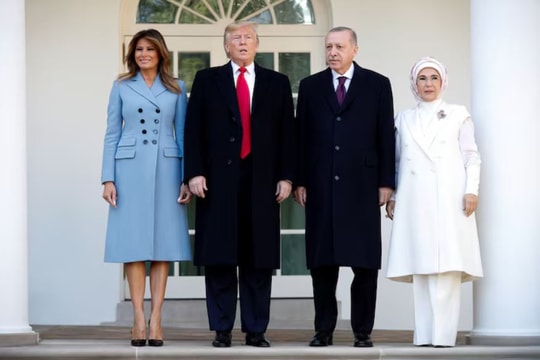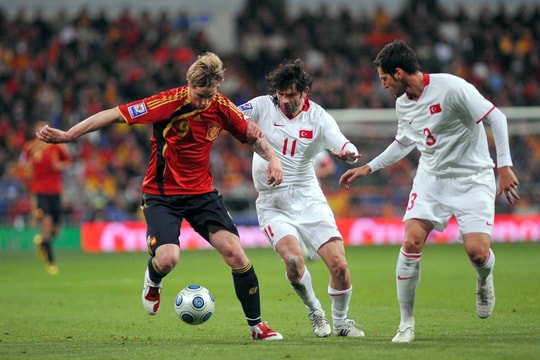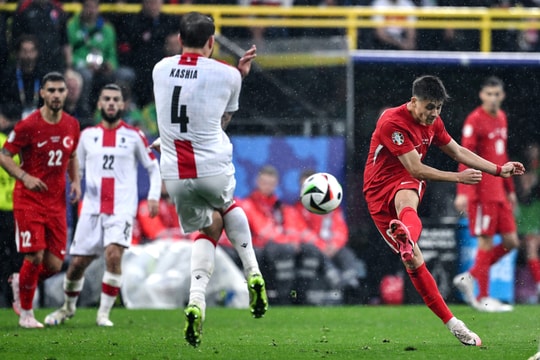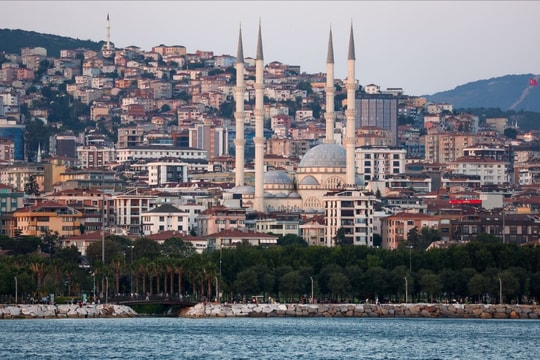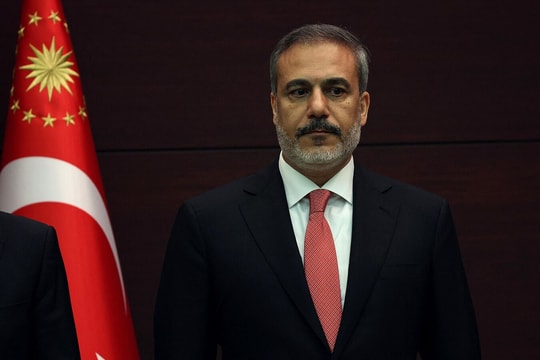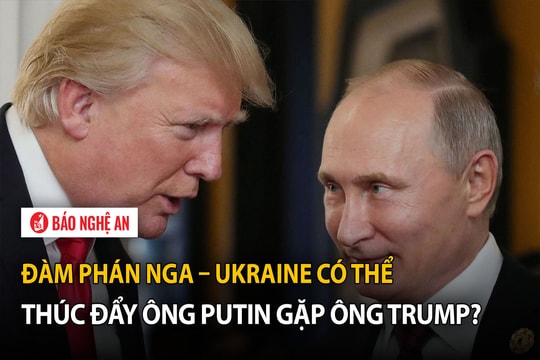The 'fight' between Türkiye and Mediterranean countries
(Baonghean) - "Evil alliance" - that was the recent harsh criticism of Turkish President Recep Tayip Erdogan towards five countries: Egypt, the United Arab Emirates, Greece, France and the Republic of Cyprus after these countries issued a joint statement condemning Turkey's intervention in Libya. But behind the arguments regarding the security situation and stability in Libya are the strategic calculations of both sides in the eastern Mediterranean Sea - an area considered an "energy chessboard".
From Türkiye's "legs" in Libya
In a recent online conference, five countries including Egypt, the United Arab Emirates, Greece, France and the Republic of Cyprus issued a joint statement expressing concern about the escalating violence in Libya, and criticized Türkiye's military intervention in Libya, which is making the country more unstable and threatening the stability of other neighboring countries in Africa.
The joint statement was issued by the five countries after Türkiye's recent moves such as providing military support to the UN-recognized Government of National Accord (GNA) of Prime Minister Fayez al-Sarraj, failing to prevent the flow of foreign fighters from Syria to Libya... The five countries accused these moves of violating the UN arms embargo on Libya, according to which no country is allowed to provide weapons to any faction in Libya.
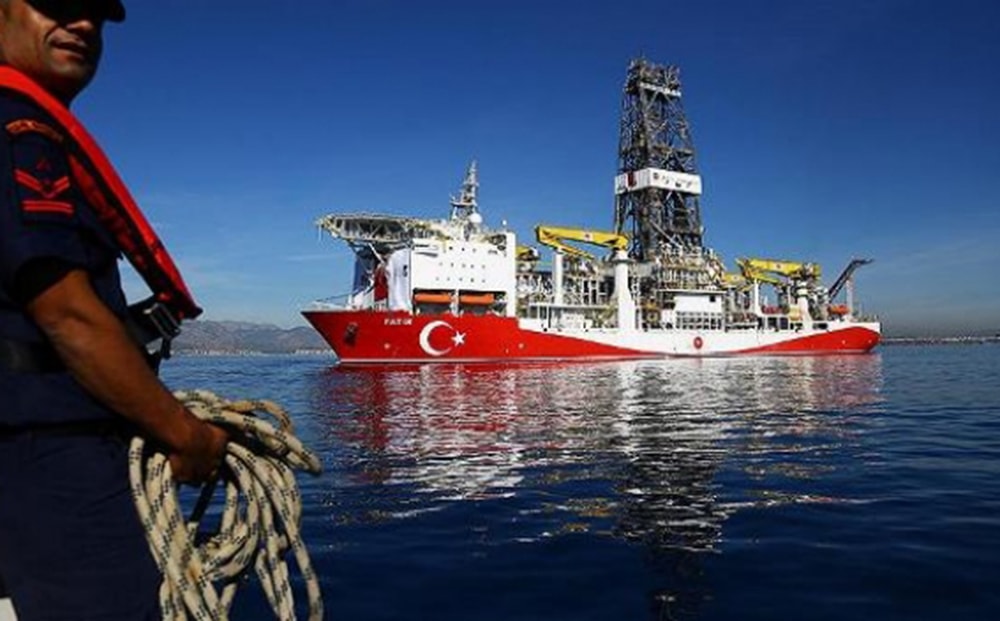 |
| Türkiye's actions in the eastern Mediterranean have been criticized by Egypt, the United Arab Emirates, Greece, France and Cyprus. Photo: Armedia |
Since the civil war in Libya led to the collapse of the Qaddafi regime in 2011, the political situation in this North African country has become increasingly internationalized, with foreign powers standing behind the Government of National Accord (GNA) of Prime Minister Fayez al-Sarraj in the capital Tripoli and the government in the east of Field Marshal Khalifa Haftar. In particular, Türkiye chose to side with the Government of Prime Minister Fayez al-Sarraj, stemming from the need to protect the relationship that Türkiye built with Libya during the Qaddafi government - a relationship that brought Turkey both economic and political benefits.
Before the war broke out in Libya, 25% of Turkish workers in Arab countries worked in Libya. Under Gaddafi, the number of contracts that Turks won in Libya reached 18 billion USD. If Field Marshal Khalifa Haftar gains control of Libya, Türkiye could lose many large contracts in the fields of construction, infrastructure, and service business.
Besides, having many Muslim figures in the Libyan National Unity Government is an advantage for Mr. Erdogan to maintain influence in the country with the largest oil and gas resources in Africa.
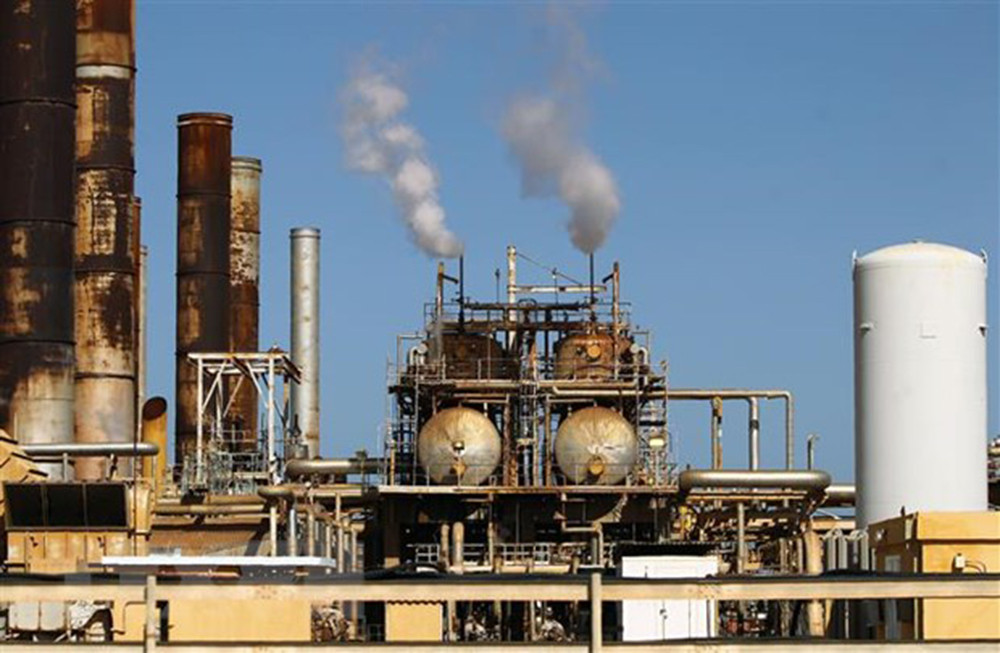 |
| An oil refinery in the town of al-Buraqah, Libya. Photo: AFP/TTXVN |
In 2018, Libya accounted for 1.1% of the world’s oil production. By 2019, Libya had increased its crude oil production to a seven-year high of 1.15 million barrels per day, accounting for 2.8% of the world’s total. With a small population, most of Libya’s oil and gas production is exported, making it a “perfect complement” to Türkiye’s economy, which is the world’s 19th largest but energy-poor economy.
Many compare Türkiye's support for Prime Minister Fayez al-Sarraj's Government of National Accord (GNA) to Russia's support for Syrian President Bashar al-Assad. It was thanks to the support of Turkish armor and drones that the GNA was able to hold Tripoli and withstand massive attacks by Field Marshal Khalifa Haftar's eastern government last year.
But Türkiye's strategy in Libya has "come into the sights" of countries in the region because Libya is just a springboard for Türkiye to expand its influence to a wider range, including the particularly important area of the eastern Mediterranean Sea - an "energy chessboard" connecting the Middle East, Africa and Europe.
 |
| Military support for the Government of National Unity in Libya is of strategic significance to Türkiye. Photo: Getty |
...to the energy war at sea
In a joint statement by Egypt, the United Arab Emirates, Greece, France and Cyprus, Türkiye was not only criticized for violating the UN arms embargo on Libya, but also for actions that escalate tensions in the eastern Mediterranean, such as conducting controversial drilling operations in Cypriot waters or flying aircraft through Greek airspace.
However, Türkiye cited the Security and Economic Agreement signed between Turkish President Erdogan and Prime Minister Fayez al Serraj to defend its actions. According to this agreement, the Government of National Unity in Libya will receive military equipment and weapons from Turkey. In return, Turkey will join Libya in protecting its interests in Libya's coastal waters in the eastern Mediterranean.
Türkiye rejected the accusations of Egypt, the United Arab Emirates, Greece, France and the Republic of Cyprus, calling this an act that harms Libya's democracy, as Libya has the right to sign bilateral agreements with rights and obligations in accordance with international law.
Türkiye has accused Greece and Cyprus of avoiding good-faith dialogue with Türkiye, accused the United Arab Emirates of joining an “evil alliance” because of its long-standing hostility to Türkiye, and accused France of seeking to destabilize it to strengthen its role as a patron in the Muslim world.
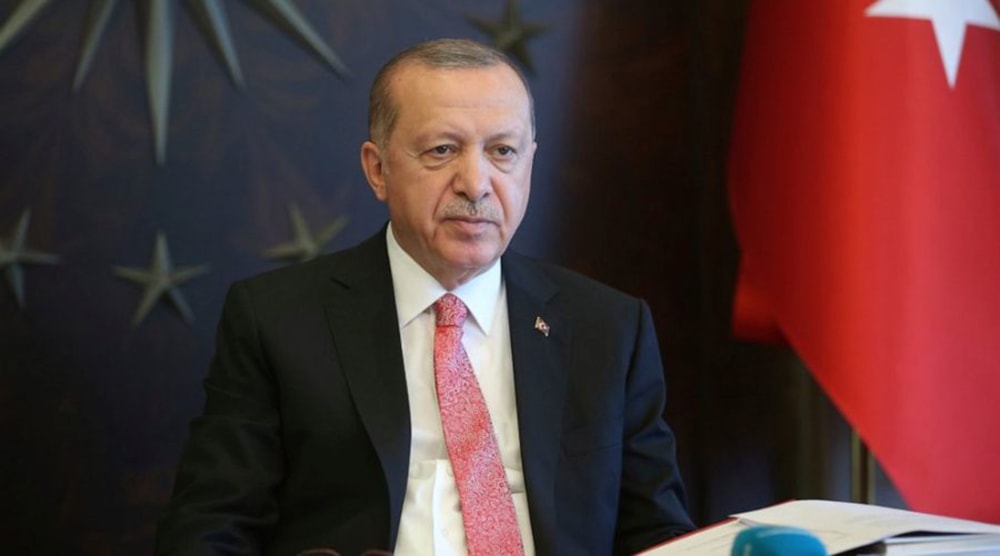 |
| Türkiye calls five countries Egypt, the United Arab Emirates, Greece, France and the Republic of Cyprus an “evil alliance”. Photo: AP. |
According to analysts, the new tense developments in relations between Türkiye and five countries in the region continue to reveal the strategic calculations of the parties in the eastern Mediterranean Sea. The huge gas reserves in this area are an abundant source of supply for the exploitation plants of Egypt and Israel. Greece and the Republic of Cyprus have recently had many agreements with Egypt and Israel related to gas exploitation in this area.
In addition, in January 2020, Greece, Cyprus and Israel signed an agreement to build a 1,900km East-Med undersea pipeline to transport gas from gas fields in the eastern Mediterranean through Greece, Cyprus, Italy and to European countries.
This project is expected to be completed in 2025, transporting 10 billion m3gas each year and is considered a “salvation” for Europe to reduce its dependence on gas from Russia. That is the reason why the battle on the “energy chessboard” in the Mediterranean region has received the attention of all European countries, led by France.
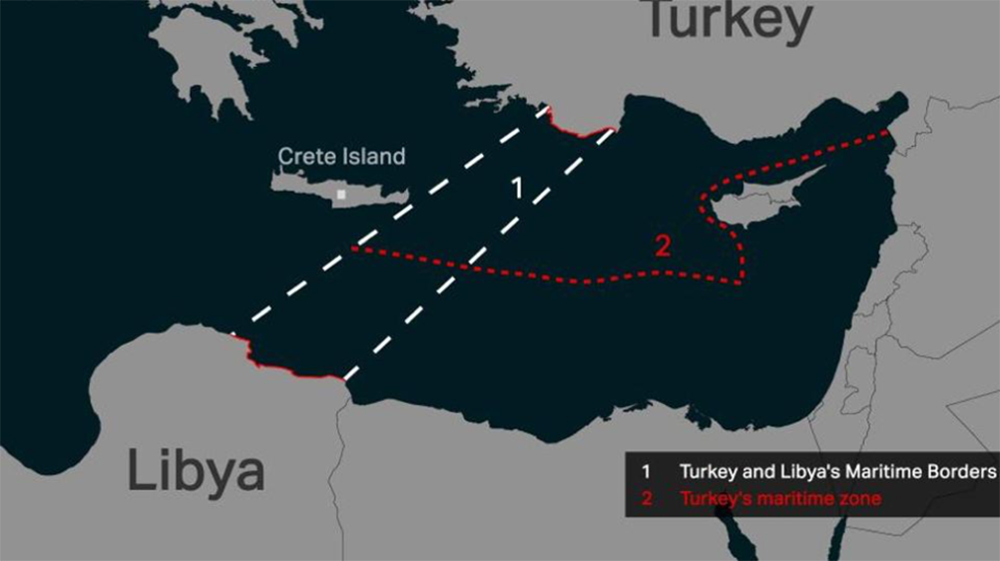 |
| The maritime area that Libya and Türkiye jointly protect under an agreement signed in November 2019. Photo: Forbes |
Meanwhile, with the security and economic agreement signed with the Libyan government, Türkiye wants to establish the right to block any energy-related projects in the eastern Mediterranean without Türkiye's consent - a not small power for Turkey to increase its economic and political influence in the region.
After Egypt, the United Arab Emirates, Greece, France and the Republic of Cyprus issued a joint statement, Türkiye called on countries to resolve the issue through dialogue and in compliance with international law and norms. Whether or not dialogue has a chance to take place, these developments once again show that, nearly 10 years after the Arab Spring, Libya continues to be swayed by the calculations of external forces, and the real "spring" that Libya has been waiting for is still far away.

